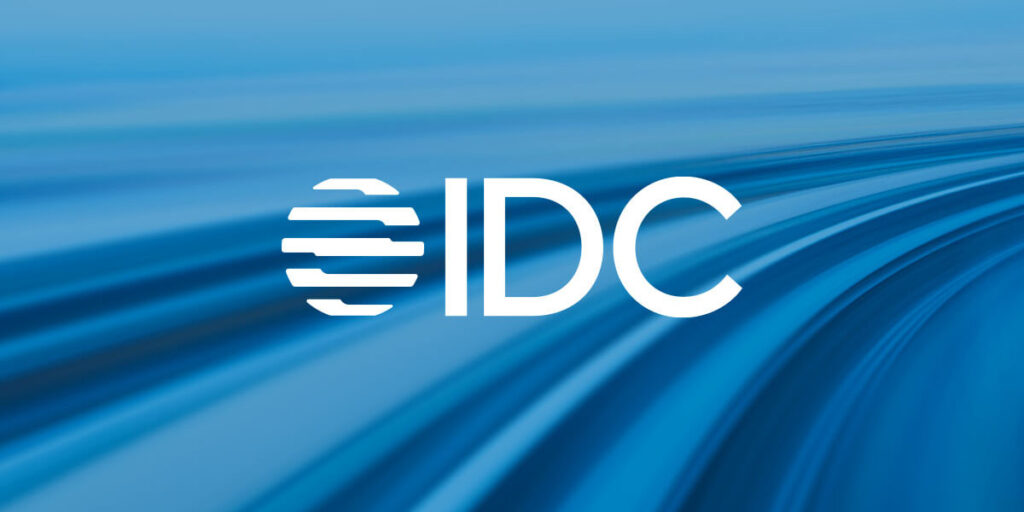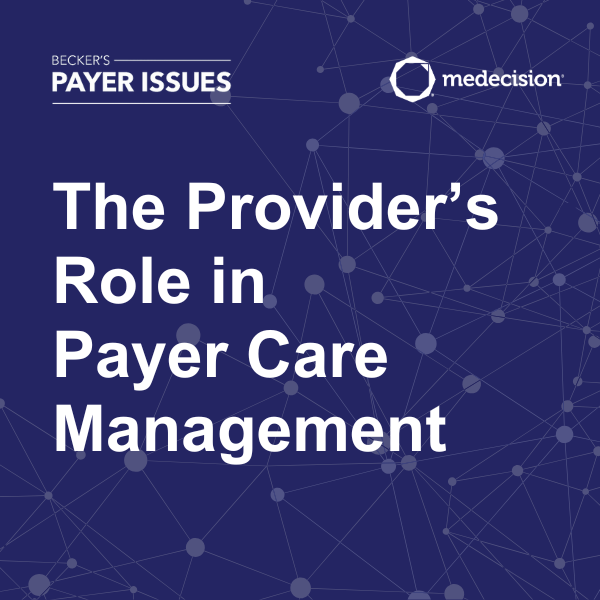
Sponsored By: Medecision
Guest IDC Blogger: Jennifer Eaton, Research Director, Value-Based Care
Date: November 2024
The digital transformation in healthcare is not just a trend; it’s a vital shift toward more efficient, personalized, and accessible care. At the heart of this transformation are technologies such as digital care management, AI, IoT devices, telehealth, and social determinants of health tools — each playing a pivotal role in enhancing members’ healthcare journeys. These innovations offer a more integrated, data-driven approach to healthcare, enabling real-time monitoring, personalized care plans, and improved communication between patients and providers.
In the realm of healthcare, the importance of digital transformation is paramount. It’s a key driver in improving clinical outcomes, reducing costs, improving operational efficiency, and, most importantly, enhancing the member experience. With healthcare spend related to digital transformation expected to increase 17% to approximately $87 billion by 2027, according to IDC, it’s clear that technology buyers are investing in use cases that blunt the impact of skill/labor shortages and inflationary pressures while satisfying members’ evolving needs. By leveraging advanced analytics and digital tools, healthcare providers can offer more proactive and personalized care, addressing not just the clinical but also the social factors influencing overall health and wellness. This holistic approach to healthcare sets the stage for a future where every member’s journey is not just managed but empowered.
Navigating Engagement Challenges
While the healthcare environment evolves and challenges wax and wane, several engagement challenges remain consistent.
- Complex Healthcare Needs: Engaging members with varying healthcare needs presents a particular set of challenges. Members with multiple chronic conditions or those enrolled in specialized programs such as Medicaid or Dual Eligible Special Needs Plans face a healthcare labyrinth. Their care involves coordination across various specialties and care plan personalization that necessitates advanced tools to effectively handle the complexities and potential friction points related to care and wellness activities. While individuals with complex care needs often require a multifaceted approach to care, which regulatory pressures and technological disparities can complicate, others desire a focus on wellness initiatives and a proactive approach to chronic disease prevention strategies.
- Regulatory Pressures: The ever-changing landscape of government regulations adds another layer of complexity. Care managers must stay abreast of new requirements and ensure compliance while simultaneously maintaining focus on member care. Legacy systems that may not support rapid adaptation to regulatory changes make this balancing act even more difficult.
- Technological Disparities: Despite the promise of digital care management platforms, the reality is that many solutions operate in silos. This lack of interoperability hinders the ability to provide a unified view of member care, complicates communication, and adds to already elevated levels of administrative burden. For populations with the greatest need, overcoming these technological barriers is crucial for effective engagement and care coordination.
Addressing these challenges requires a thoughtful approach that combines innovative technology with compassionate, person-centered care. With such an approach, healthcare payers and providers can collaborate to improve outcomes for members with complex needs, ensuring they receive the comprehensive support they desire and deserve.
Harnessing Digital Care Management for Enhanced Member Engagement
In the realm of healthcare, the integration of care, personalized member experiences, and technology as facilitators stand out as pivotal elements in revolutionizing member engagement. Digital care management offers a heightened blend of these elements to foster more engaging, informative, and proactive interaction with members at scale.
- Integration of Care: A Unified Approach
Digital care management platforms excel at integrating various communication channels, thereby simplifying the navigation of care plans for members. By leveraging real-time data insights and highlighting next-best actions based on general guidelines and each member’s unique health profile as it evolves over the care continuum, care coordination can now drive impactful, tailored interventions that produce short- and long-term outcome improvements. This unified and personalized approach ensures that members receive comprehensive and continuous care, bridging the gap between different providers and services. By offering a dashboard view of each member’s health journey, care managers gain a holistic understanding, enabling them to coordinate care more effectively. - Personalized Member Experience: Tailoring Care with Precision
At the heart of digital care management lies the ability to personalize each member’s experience, thus creating continuity and consistency across the entire member journey. Leveraging advanced analytics and AI, these platforms can predict health risks and tailor care plans to meet members’ individual needs at the right time. From health education articles to interactive assessments, these platforms design every interaction to resonate with the member’s unique health journey, encouraging active participation in their care. - Technology as a Facilitator: Empowering Members and Care Managers
Technology plays a crucial role in extending the reach of care teams, allowing them to engage more fully with members in a comprehensive and holistic way. While features such as omnichannel communication, automated reminders, and real-time data sharing enhance the efficiency of care management processes, additional value is realized through the potential for a holistic and scalable approach to coordination of preventative care, wellness, chronic disease management, behavioral health, complex care management, and more. While access to digital tools, platforms, and other resources necessary for effective self-management will empower members to take an active role in their health, care managers will also be empowered and enabled to scale best practices across entire member populations, not just those with current high levels of complexity or risk.
Digital care management represents a significant leap forward in how health plans engage with their members. By integrating care, personalizing experiences, and leveraging technology, these platforms not only improve clinical outcomes but also elevate the member experience. As we continue to navigate the digital revolution in healthcare, the power of digital care management in enhancing member engagement cannot be overstated or overlooked.
Message from the Sponsor
Medecision: Personalize Care Management, Drive Engagement, and Improve Outcomes Across All Risk Levels
Aerial Care Management with Guided Health Journeys offers a digital solution for managing wellness, chronic conditions, and complex care. Personalized journeys adapt in real-time, monitoring individual data to recommend the next best action. It enables engagement with individuals and primary care physicians from the start, addressing needs across all risk profiles. Start a conversation with Medecision.



About The Author: Jennifer Eaton
Jennifer Eaton is Research Director for Value Based Healthcare IT Transformation Strategies. Her core research coverage includes the use of cognitive/AI technologies to advance digital transformation in healthcare, particularly relate to value-based health, the intelligent healthcare enterprise and industry ecosystem.
More posts by Jennifer Eaton